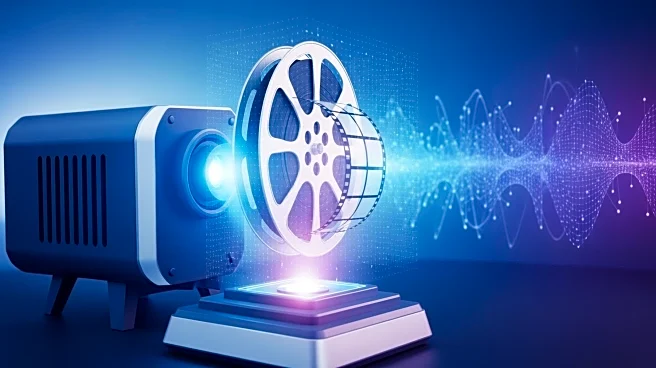What's Happening?
OpenAI has announced measures to prevent the creation of unauthorized deepfake videos of celebrities using its AI video app, Sora. This decision follows concerns raised by actor Bryan Cranston and the Screen
Actors Guild-American Federation of Television and Radio Artists (SAG-AFTRA) regarding the misuse of celebrity likenesses. OpenAI has reached an agreement with the actors' union and talent agencies, requiring celebrities to opt-in for their likenesses to be used in AI-generated videos. The company has strengthened its guardrails to prevent unauthorized replication of voice and likeness, responding to the growing trend of disrespectful AI-generated content.
Why It's Important?
The collaboration between OpenAI and actors highlights the ongoing conflict between AI technology and intellectual property rights. As AI-generated content becomes more prevalent, the protection of celebrity likenesses and personal rights is increasingly critical. This development emphasizes the need for clear regulations and ethical guidelines in the use of AI technologies, particularly in creative industries. The agreement sets a precedent for how AI companies can work with rights holders to ensure respectful and consensual use of personal likenesses, potentially influencing future policies and industry standards.
What's Next?
OpenAI's decision to require opt-in consent for the use of celebrity likenesses in Sora may lead to broader discussions on the regulation of AI-generated content. Stakeholders, including legal experts, policymakers, and industry leaders, are likely to explore frameworks to balance innovation with ethical considerations. The entertainment industry may push for more stringent protections against unauthorized use of personal likenesses, potentially leading to new legislation or industry-wide agreements. As AI technology continues to evolve, ongoing dialogue and collaboration will be essential to address the ethical and legal challenges it presents.









